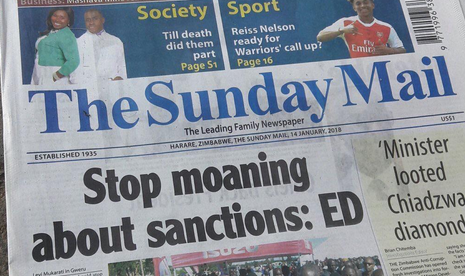A new bill introduced in the US Congress could see the Zimbabwe Democracy and Economic Recovery Act (ZDERA) repealed, but economic cooperation with the United States would still hinge on resolving outstanding compensation for white former commercial farmers.
The “Department of State Policy Provisions Act”, introduced by Republican Representative Brian Mast of Florida, chairman of the House Foreign Affairs Committee, proposes broad changes to US foreign policy, including how American diplomats engage with foreign entities and advancing economic interests in Africa. Mast described the Bill as a safeguard against “ideologues masquerading as diplomats” who push agendas contrary to US interests.
Among its provisions is a proposal to drop ZDERA, first enacted in 2001 and amended in 2018. While the repeal would remove the act, Mast’s Bill stipulates that US support for new or expanded loans from the International Monetary Fund (IMF) or the World Bank would be conditional on Zimbabwe fully paying white former farmers within 12 months. The Bill explicitly bars compensation through Zimbabwe-issued securities.
Currently, Zimbabwe has a controversial compensation deal with white farmers under which it pays only for improvements on expropriated farms, not the land itself. The total owed is US$3.5 billion, with the first payments of US$311 million approved in April 2025 for 378 farms. Only 1% of that payment—US$3.1 million—is in cash, while the remainder is in USD-denominated Treasury bonds carrying a 2% coupon with maturities of 2-10 years. The 2025 National Budget allocated US$10 million toward farmer compensation.
The government argues that issuing bonds and staggering payments is necessary due to Zimbabwe’s inability to pay billions in cash at once. However, under the proposed Bill, Zimbabwe would need to settle its full obligations in cash within a year of any new IMF or World Bank lending agreement. This could block Zimbabwe from accessing new international loans even if it clears its current US$21 billion debt arrears.
ZDERA was initially enacted in response to human rights abuses, the controversial land reform program, and Zimbabwe’s involvement in the Democratic Republic of Congo conflict. The 2018 amendment reinforced requirements that Zimbabwe comply with the SADC tribunal rulings, which ordered full compensation to white farmers and, in some cases, restitution of expropriated land.
Zimbabwe’s Constitution, however, limits compensation to improvements on land acquired from white farmers, creating a conflict with the tribunal’s rulings. Section 295 allows compensation only for indigenous Zimbabweans or under Bilateral Investment Promotion and Protection Agreements (BIPPAs), leaving white farmers largely entitled to payment for farm improvements alone.
Analysts say the new US Bill could create a significant hurdle for Zimbabwe, as securing full cash compensation for white farmers within a year could strain the country’s already stretched finances.
- newZWire
 OK Zimbabwe posts US$17,8 million loss
OK Zimbabwe posts US$17,8 million loss  Hichilema meets Chivayo
Hichilema meets Chivayo  Millions celebrate Diwali festival in India
Millions celebrate Diwali festival in India  Econet Zimbabwe to delist from ZSE
Econet Zimbabwe to delist from ZSE  Gold edges up as traders await guidance
Gold edges up as traders await guidance  Mnangagwa fires Chitando, appoints Polite Kambamura
Mnangagwa fires Chitando, appoints Polite Kambamura  Young Investment Professional (YIP) Graduate Programme 2019
Young Investment Professional (YIP) Graduate Programme 2019 











 Young Investment Professional (YIP) Graduate Programme 2019
Young Investment Professional (YIP) Graduate Programme 2019
Editor's Pick